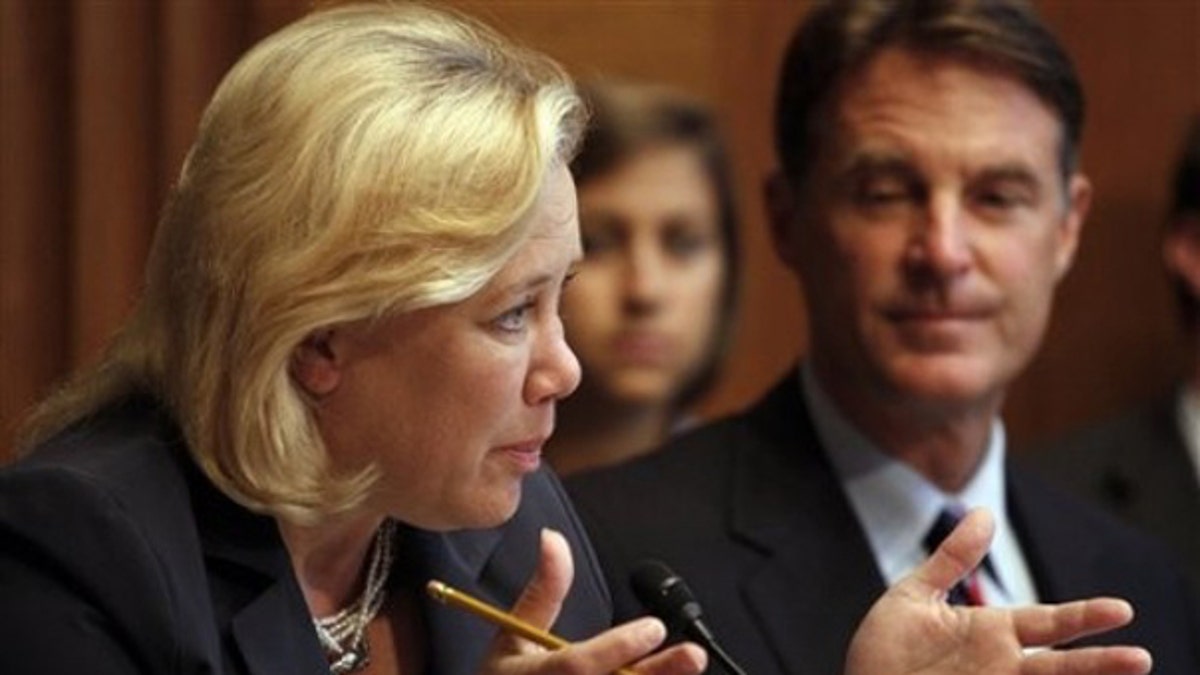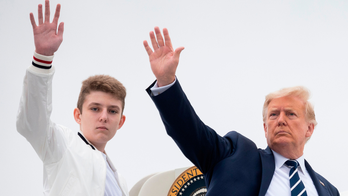
Sen. Mary Landrieu and Sen. Evan Bayh are shown here at an energy committee meeting June 17 on Capitol Hill. (AP Photo)
As the Senate digs in for weeks, or months, of debate over health care reform, some politicians are suggesting that Congress may settle for an "imperfect" bill just for the sake of getting it passed -- even if it means abandoning or delaying initiatives important to President Obama and his supporters.
Republicans are almost resolutely opposed to any legislation that would come out of the debate, which started in the Senate Monday, and for the most part their votes are considered out of reach. This means that moderate Democrats, who are pushing for a more streamlined bill, hold the key to passage.
White House officials repeatedly said over the summer that lawmakers were "80 percent" in agreement over the plan, and they were seeking the final 20. Months later, with several deadlines broken and the midterm election year approaching, 80 percent might just be good enough -- hearkening back to one of the president's favorite nuggets of advice: the perfect should not be the enemy of the essential.
"The political process as it's currently constituted in Washington may just be incapable of coming up with an ideal solution. So we may be left with alternatives that are less than ideal," Sen. Evan Bayh, D-Ind., said on "Fox News Sunday." He echoed his Democratic colleagues in saying inaction is not an option -- in other words, it's better to have an imperfect bill than no bill at all.
"The other thing would be to vote for a bill, frankly, that we continue to have some questions about. That may be the choice that we're left with," Bayh said. "So my objective is to try and make that alternative of doing something as positive as we possibly can, realizing that at the end of the day it may be just imperfect. And unfortunately, that's the way Congress works from time to time."
Former President Bill Clinton, the last president to have tackled health care reform and failed, went further in his advice to congressional lawmakers last month, suggesting that Congress can always come back to the legislation years down the road and improve it -- piece by piece.
"It's not important to be perfect here," Clinton was quoted as saying. "There will be amendments to this effort, whatever they pass, next year and the year after and the year after." Clinton, too, warned that "the worst thing to do is nothing."
Obama has made clear that he does not consider a controversial government-run insurance plan to be essential to health care reform, even though he supports it. And that would likely be one of the first programs on the chopping block, or whittling block, no matter how loudly liberal Democrats object.
Sen. Blanche Lincoln, D-Ark., who faces a tough re-election next year, said she would support a filibuster if the "public option" stays in, though she voted with Democrats to start debate last month. Sen. Joe Lieberman, I-Conn., consistently has made the same threat.
Sens. Ben Nelson, D-Neb., and Mary Landrieu, D-La., also have qualms about Majority Leader Harry Reid's bill in its current form, though they too voted to start debate.
"If the public option is wrong, if the CLASS act is still in it, if there are a whole host of other items that are the same as they are right now, I wouldn't vote to get it off the floor," Nelson told ABC News last month. The CLASS Act is a long-term care program that has come under fire from some Democrats who question whether it is sustainable.
Another sticking point for moderate Democrats is abortion. Some want to fashion a bill with language similar to that in the House, which put firm barriers between taxpayer dollars and abortion coverage.
"I think the House had an effort that led to a better conclusion at the end of their bill," Sen. Bob Casey Jr., D-Pa., told Fox News on Tuesday. "This is one of those areas where we have to work on. ... We still have a long way to go in a short period of time in the next couple of weeks, and I think it's important to get a bill passed."
Unlike some fellow moderates, Casey, an abortion opponent, said he would not draw "lines in the sand" over his concerns.
Other top Democrats have also signaled they're ready to deal. Senate Majority Whip Dick Durbin of Illinois said last month that while he's "committed" to the public option, "We are open because we want to pass this bill."
On NBC's "Meet the Press" with Durbin, California Sen. Dianne Feinstein suggested she may be willing to vote for a bill without a government-run insurance plan "if it had a rate authority to be able to control the increase in premiums."




